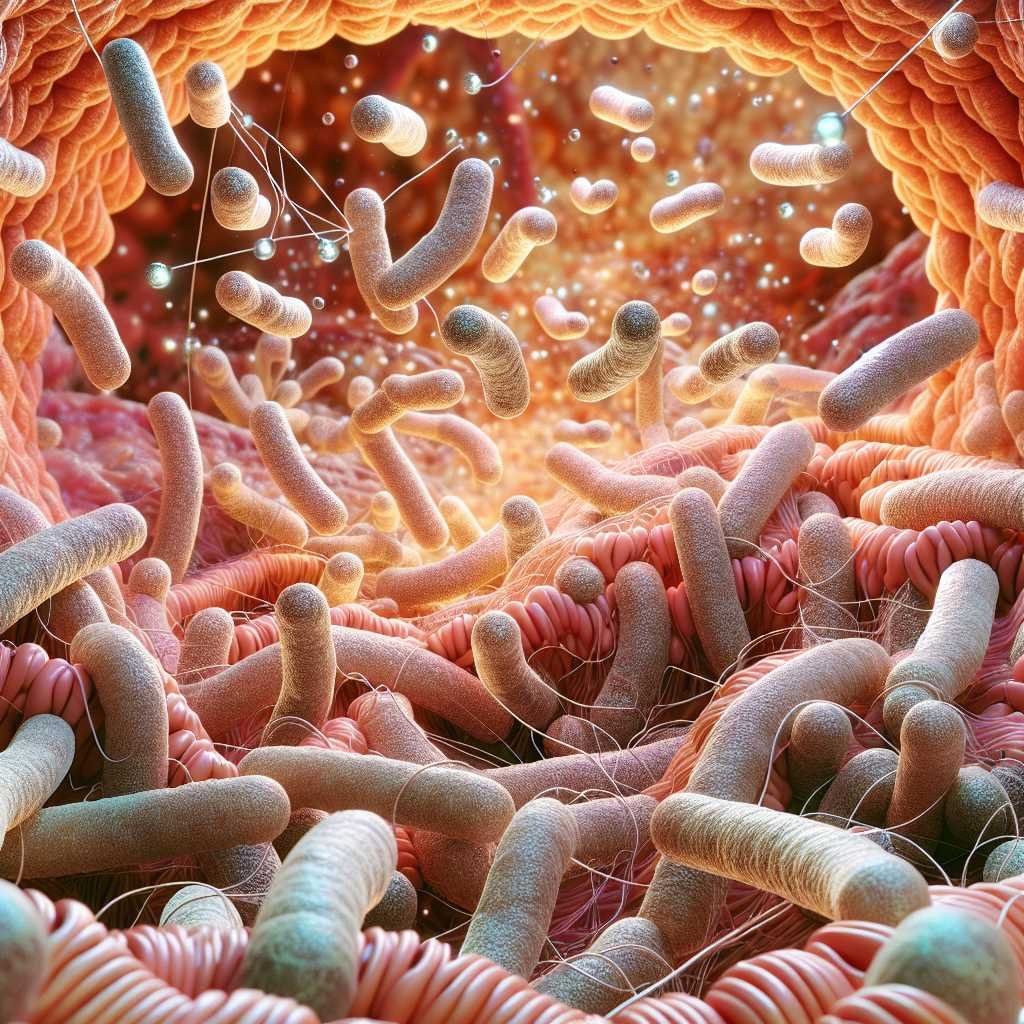Akkermansia Muciniphila: The Microbiome Superstar You Should Know About
Introduction
Recent research into the intestinal microbiome is revealing promising new probiotic species that could transform the field of medicine. The gut microbiome is a complex ecosystem made up of genetic material from trillions of microorganisms, collectively known as microbiota. This intricate system plays a significant role in our overall health and well-being.

The Impact of the Microbiome on Health
Studies indicate that the microbiome has a profound influence on various bodily systems, particularly in relation to digestive, immune, and mental health. An imbalance in the gut microbiome can lead to a range of health issues, from mild digestive discomfort, such as gas and bloating, to more serious conditions like obesity, diabetes, Alzheimer’s disease, and chronic inflammation.
Understanding Akkermansia
Akkermansia muciniphila is a type of bacteria that plays a vital role in maintaining the health of the gut lining and enhancing insulin sensitivity, which is crucial for managing obesity and blood sugar levels. Interestingly, the benefits of A. muciniphila extend beyond its live probiotic properties; the compounds it produces also contribute to its effectiveness.
The Unique Nature of Akkermansia Muciniphila
Research suggests that A. muciniphila may be more beneficial in its dead form than when alive. This phenomenon is not unique to A. muciniphila; other lactic acid-producing probiotics, such as Lactobacillus and Bifidobacterium species, have also shown effectiveness when heat-killed. This challenges the conventional belief that only live bacteria, measured in colony-forming units (CFUs), are effective probiotics.
The Role of Akkermansia Muciniphila in Gut Health
A. muciniphila is essential for the health of the mucin layer, which protects the intestinal lining. The name “muciniphila” translates to “love of mucin,” highlighting its role in mucin production alongside epithelial cells. Higher levels of A. muciniphila correlate with improved gut barrier function, reduced intestinal permeability (often referred to as “leaky gut”), and enhanced digestive efficiency.
Consequences of Insufficient Akkermansia
A lack of A. muciniphila can compromise the gut barrier, leading to the absorption of harmful gut-derived toxins. This can overstimulate the immune system, resulting in inflammation and contributing to conditions such as non-alcoholic fatty liver disease, arthritis, skin disorders, cardiovascular issues, and neurological disorders.

Health Benefits of Akkermansia Muciniphila
Diabetes and Obesity
The relationship between A. muciniphila and metabolic health is particularly intriguing. Research shows that as levels of A. muciniphila decrease, the prevalence of obesity, diabetes, and inflammation increases. Conversely, higher levels of this bacterium are associated with lower rates of these conditions.
The first human clinical trial involving A. muciniphila was published in Nature Medicine on July 1, 2019. In this study, 32 participants with pre-diabetes and metabolic syndrome were given either a placebo or A. muciniphila (either live or heat-killed) for three months. The results indicated that A. muciniphila significantly improved insulin sensitivity and reduced markers of inflammation and liver function.
Dead vs. Live Bacteria
Interestingly, the study found that the heat-killed bacteria outperformed their live counterparts. This finding emphasizes the importance of focusing on clinically tested forms and dosages of probiotics rather than merely the number of live bacteria present.
Blood Sugar Control
Live A. muciniphila may enhance its levels in the gut microbiome, leading to potential clinical benefits. A double-blind study involving 76 participants with type 2 diabetes demonstrated that a probiotic formula containing live A. muciniphila, along with other bacteria, improved blood sugar control when taken alongside metformin.
How to Increase Akkermansia Levels
While A. muciniphila is now available as a probiotic supplement, it is also essential to consider dietary factors that promote its growth. The right conditions in our microbiome can nourish beneficial bacteria like A. muciniphila.
Adopting a FODMAP Diet
The FODMAP diet focuses on foods that are easily fermented by gut bacteria. This includes:
- Oligosaccharides: Found in beans and certain vegetables.
- Disaccharides: Such as sucrose.
- Monosaccharides: Like fructose.
- Polyols: Sugar alcohols used as sweeteners.
Foods That Promote Akkermansia
Incorporating the following foods can help boost A. muciniphila levels:
- Vegetables: Artichokes, asparagus, broccoli, garlic, and onions.
- Fruits: Apples, berries, and pears.
- Legumes: Beans, lentils, and chickpeas.
- Non-gluten grains: Oats, quinoa, and rice.
Flavonoids and Fish Oils
Flavonoids, found in various fruits, vegetables, and teas, have been shown to significantly enhance A. muciniphila growth. Additionally, omega-3 fatty acids from fish oils can also support increased levels of this beneficial bacterium.
Berberine’s Role
Berberine, an alkaloid found in several plants, has demonstrated beneficial effects on digestive health and can increase A. muciniphila levels. This contributes to its positive outcomes in clinical trials related to blood sugar management and weight control.
Conclusion
Many healthy diets, such as the Mediterranean diet, are rich in compounds that promote the growth of A. muciniphila. However, diets like the ketogenic and paleo may lack these beneficial foods, making it necessary for individuals following these diets to consider supplementation with prebiotics, flavonoid-rich extracts, and omega-3 fatty acids.
By understanding and supporting the growth of Akkermansia muciniphila, we can take significant steps toward improving our gut health and overall well-being.
DISCLAIMER: This Wellness Hub does not intend to provide diagnosis…

